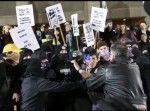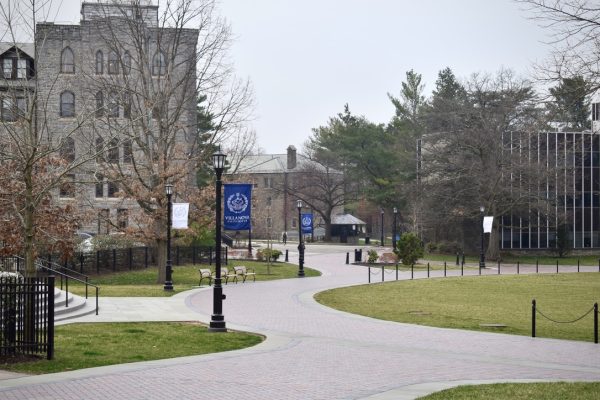Milo Yiannopoulous: Free Speech or Hate Speech?

February 8, 2017
On Feb. 1, the University of California Berkley canceled the appearance of right-wing writer Milo Yiannopoulous about one hour after protests began on campus. Students set fires and threw objects. A lockdown was in place for six hours following the start of the protests. Violence also occurred at Yiannopoulous’ last public appearance, at the University of Washington, where one of Yiannopoulous’ supporters shot a protester in the stomach. Drexel University professor George Ciccariello-Maher reportedly had credible sources stating that Yiannopoulous would out undocumented students at Berkeley during his speech.
Yiannopoulous and Donald Trump both agree that Berkeley students’ reactions indicate that they do not tolerate free speech. Many argue that Yiannopoulous represents a point of view that liberals disagree with, but that he should be allowed to speak, lest college students allow their intellectual skills to atrophy, as they remained coddled in liberal bubbles.
The University temporarily faced a similar situation. A group of students circulated an electronic invitation to generate interest for Yiannopoulous to appear on campus. It’s worth noting and remembering the reason that Student Life and other university officials denied Yiannopoulous from being approved as a speaker. He was not allowed to speak on campus, not because of what he said, but rather how he said it.
To me, how an institution deals with the prospect of Yiannopoulous appearing on campus is a litmus test of its character. I’m proud that Villanova chose to hold up the values of dialogue and genuine engagement rather than entertain a hateful agitator who seeks to rile others with incendiary remarks rather than have conversations that revolve around genuine issues.
Yiannopoulous is banned from Twitter for targeting abuse and inciting abuse against actress Leslie Jones. He popularized the Gamergate scandal, encouraged supporters to catcall women, referred to both Islam and feminism as cancer and called transgendered people mentally ill. Many college students who are protesting are frustrated by the very notion that he should even be entertained or legitimized as a public figure—this deep seeded frustration at the most basic levels creates divides in terms of what one considers civil or within the realm of acceptability.
An individual who presented thoughtful arguments rather than fundamental disrespect for marginalized identities decoratively re-packaged in the form of his personal brand would far better serve the liberal bubble of college campuses.








